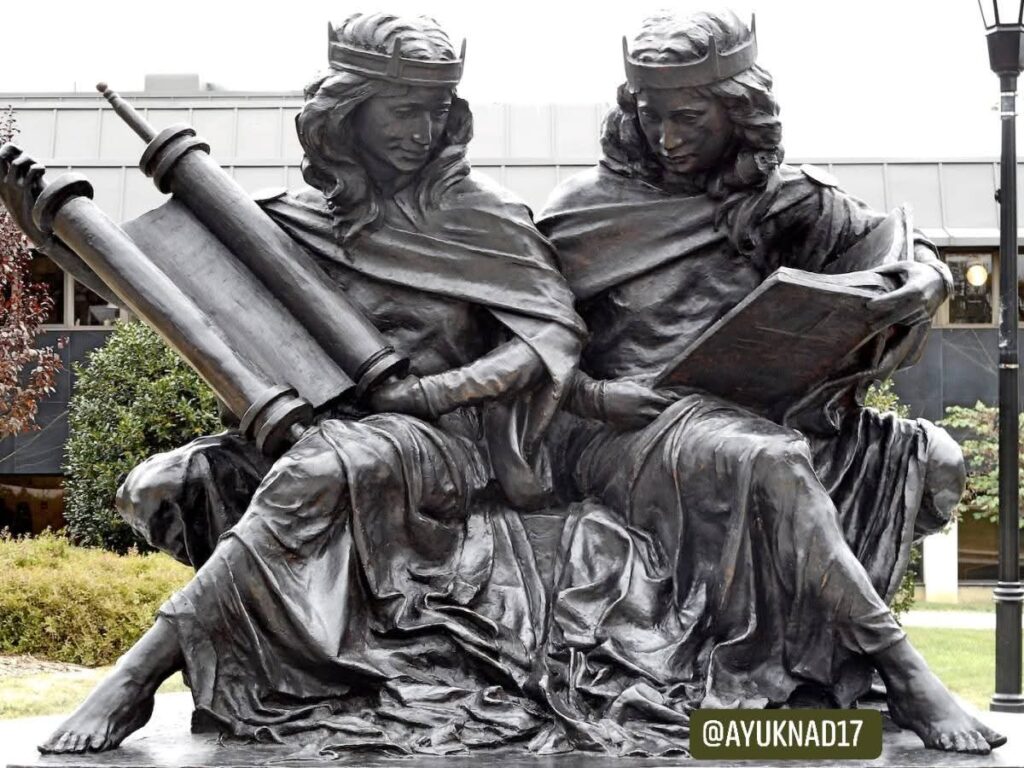Nostra Aetate (1965-2025)
Nostra Aetate October 28, 1965 – October 28, 2025
True Hidush (renewal) in the relationship of the Church with the Jewish People and with Judaism
by Br Elio Passeto, NDS

A retrospective analysis of the 60 years since the promulgation of the Nostra Aetate Declaration by the Second Vatican Council confirms that it represented a profound change in the way the Catholic Church relates to the Jewish people. Nostra Aetate is, in essence, the official document of the Church that allowed the Catholic world to reflect on its relationship with the Jewish people and Judaism, with its own history and identity.
In paragraph 4, the Declaration breaks with the theological logic of supersessionism: the idea that the Church has replaced Israel as the chosen people. This theological conception not only distanced the Christian faith from its original foundations, but also marginalised Judaism as a living religion and legitimised discriminatory practices, forced conversion policies, and ultimately paved the way for modern antisemitism, including that which tragically culminated in the Shoah.
Therefore, by affirming that the Jews “continue to be loved by God,” whose Covenant is irrevocable (cf. Rom 11:28-29), the Church breaks with this theological logic. This affirmation introduced a paradigm shift: it is not simply a matter of improving relations with Judaism and the Jewish people for ethical or historical reasons, but of recognising the permanent validity of Israel’s election and, therefore, its continued theological relevance. Thus, the declaration Nostra Aetate inaugurated a new way of thinking about the Church in relation to Judaism, urging Catholics to adopt a new Christian attitude toward the Jewish people and Judaism.
The Church, in exploring her own mystery, encounters the Judaism of all times: from Abraham to the present day. Therefore, it is a look at itself; Judaism is revealed from within. From this “re-encounter,” the Church affirms the permanence of Israel as the people of the “irrevocable covenant,” thus continuing to be a sign of God’s fidelity to his people for the good of all humanity. Therefore, in her mystery, the Church is called to bear witness to this fidelity and to renounce any form of proselytism toward the Jewish people.
Overcoming the theology of replacement, therefore, does not simply imply a historical, ethical, or linguistic revision, but requires a profound reconfiguration of Christian theology itself. Recognising Israel’s permanence as a theological subject means affirming that the Jewish people continue to play an active and irreplaceable role in God’s salvific plan, not only as a witness to the past, but as a living interlocutor of faith in the present.
In this sense, Christian theology is challenged to develop a hermeneutic that recognises the irrevocable nature of Israel’s election (cf. Rom 11:29), not as a theological problem to be resolved, but as a mystery to be contemplated. The challenge lies in maintaining the integrity of the Christian faith—centered on the revelation of God in Jesus Christ—without reducing Judaism to an obsolete or merely preparatory reality. It is a matter of simultaneously affirming the newness of Christ and the continuity of the covenant with Israel.
The living presence of Israel in the Church’s theological horizon, taught in its countless documents over the 60 years since the Declaration Nostra Aetate, challenges the Church to consider itself not as the exclusive heir of the promises, but as a co-witness of the God of the covenant concluded with Israel, to which the Church associates herself. As the Church document states: “Israel remains in a covenant relationship with God, because the covenant-promise is definitive and immutable” (Notes for a correct presentation of Jews and Judaism in the preaching and catechesis of the Catholic Church, May 1985).
We learn that Christian theology continues to face the challenge of integrating, within its doctrinal core, the continuous and theologically significant presence of Israel. The institutional conversion promoted by Nostra Aetate must be accompanied by a deeper theological conversion, capable of reconfiguring (rethinking) soteriology, ecclesiology, and Christology, based on a non-hierarchical, but dialogical relationship with the people to whom “belongs adoption as sons, and glory (Kavod), and covenants, and Law, and worship, and promises, to whom belong the Patriarchs, and from whom Christ according to the flesh (incarnation) descended…” (Rom 9:4-5). These values belong to Israel and are eternal. It is in them that God is incarnated, becoming a Jewish man, and amplifies them to all humanity. God made flesh is the ultimate expression of our faith: the risen Jesus remains a Jewish man and God incarnate.
By Br Elio Passeto, NDS
[Copyright © 2025]

Comments are closed